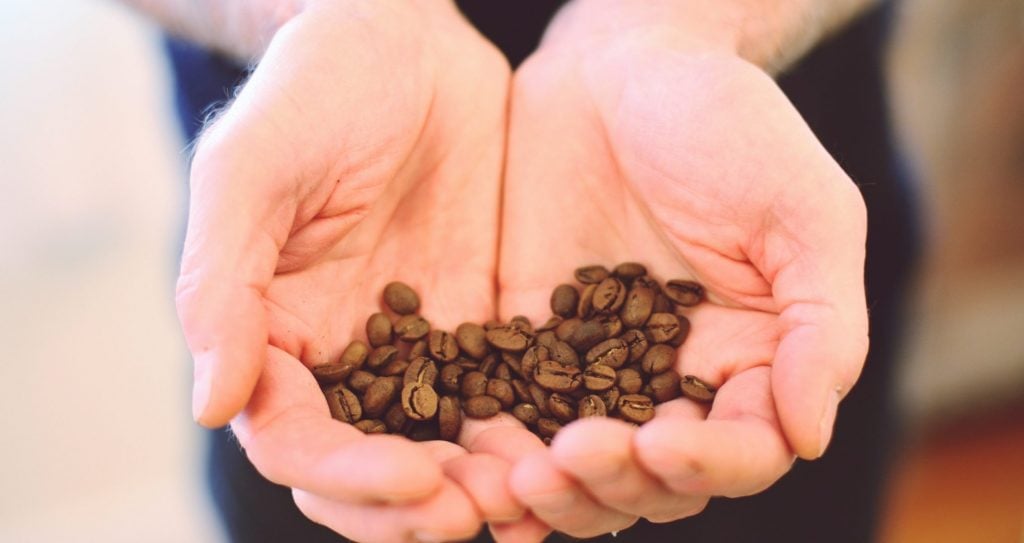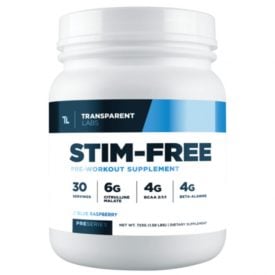Some of us can’t start the day without a boost of caffeine, but just how useful is it for our progress in the gym?
The story seems to be the same for many of us; we roll out of bed, meander downstairs still in that sleepy haze, brew a cup of coffee, and suddenly we are as alert as ever. That boost we get from caffeine can be addictive and as a powerful stimulant, its properties of helping or hurting our progress in the gym have long been debated. However, you also see caffeine in so many bodybuilding supplements, like pre-workouts and those addictive energy drinks, so is caffeine good or bad for your progress?
Studies have shown great benefits to caffeine and offers us a great boost of joy knowing we aren’t really hurting our bodies too much by consuming three cups of coffee a day. Then something else comes out expressing the dangers of caffeine and we fall into that pit of despair as we throw our third cup of coffee away.
But as a legal stimulant, caffeine is something that has been around forever and has long been used by athletes to stimulate weight loss and enhance exercise performance by promoting energy and alertness. But the argument around caffeine and athletic performance stems from its ability to raise stress levels in those already committing themselves to exercise induced stress. So, while this natural stimulant has great benefits for some facets of athletic performance and bodybuilding, there are some downsides that are important to take note of.
Our team at Generation Iron is going to break it down.
What Is Caffeine?
Caffeine is a natural stimulant found in coffee, tea, and cacao plants and works by stimulating your brain and central nervous system (1). This is where your feelings of alertness and prevention of exhaustion comes into play. Caffeine mainly affects the brain and functions as a hormone blocker for adenosine, a neurotransmitter that relaxes the brain. For those who drink coffee or other caffeinated drinks late at night and wonder why falling asleep is so challenging, it is because caffeine has constantly been blocking your relaxation receptors, leaving you totally wired.
While caffeine has an abundance of benefits including aiding in weight loss, improving performance, and promoting gut health, there are some unfortunate side effects that include anxiety, restlessness, and poor sleep and can lead to headaches or high blood pressure (2). Many fat burner supplements and pre-workouts happen to contain the substance to assist in your bodybuilding progress. But the challenge comes with taking the right doses of caffeine so it helps you instead of leading you down a path of regression.
The Positives Of Caffeine
Caffeine can aid in weight loss by kickstarting the process of lipolysis, which is great because your body releases free fatty acids into the bloodstream by breaking fat stores to be used for energy (3). It is a great way to boost your metabolism in order to find stored fat energy. As a result of this process, your body has energy to burn, and fat energy at that, to keep you working hard through those grueling workouts as you seek to build muscle and shed fat for your bodybuilding progress.
As a stimulant that blocks those adenosine receptors, your brain doesn’t feel the sensation of exhaustion or relaxation and gives you that mental energy to keep grinding in the gym to results quickly. With a rise in dopamine and norepinephrine as a result of this as well, your mood and brain function increase allowing for better work to be done. Caffeine is a great natural stimulant to take for energy and fat loss and your bodybuilding progress is sure to see great gains.
Be Aware of What Caffeine Can Do
Caffeine provides many great benefits, but the fear comes with too much of it and the negative result it can have on your body which can in fact counter all the progress you are making. Caffeine can lead to elevated levels of anxiety and stress (4), as well as raise your cortisol levels. The down side to elevated cortisol levels is that it can stunt your body’s natural recovery process if you consume too soon after a workout. For those who don’t, it is something to keep in mind, but for those who enjoy a cup right after a workout, maybe consider shifting your caffeine schedule around.
The real issues comes with how much caffeine you are actually ingesting (5). If you are taking caffeine through a pill form or a standardized liquid, then it is easy to keep track. But with different levels of varying degrees of strength for each coffee brand, it is important to look at just how much is in each cup.
The biggest thing to watch out for is if you are taking supplements that have caffeine. This could be a fat burner or a pre-workout, but either way, you may be consuming way more caffeine than you actually know. Don’t let jitters and anxiety consume you because of your caffeine intake and just work on timing your caffeine right so it works for your benefit, not your detriment.
Stim-Free Options
Of course, there are stimulant free supplement options that can boost your energy levels. Something like this can come in handy if you don’t want to consume too much caffeine, or you are someone who has to workout late and doesn’t want to have trouble falling asleep.
Transparent Labs PreSeries Stim-Free is an amazing option for those looking for stimulant free supplements for strength training, weight loss, and improved performance. With key ingredients at effective dosages, this is a great pre-workout for anyone looking for stim-free options.
PreSeries Stim-Free is the ultimate pre-workout solution for those who want to maximize their training without relying on caffeine or other stimulants. This carefully formulated supplement boosts nitric oxide levels, enhances focus and endurance, and supports lean muscle growth—all without added stimulants. It’s an excellent option for individuals who are sensitive to stimulants or cycling off caffeine.
Loaded with Proven Ingredients
Each scoop of PreSeries Stim-Free delivers over 23 grams of performance-packed ingredients, featuring 13 active compounds at clinically effective dosages. Key players include Citrulline Malate, Beta-Alanine, Betaine, and Taurine, making it a highly effective choice for serious athletes and fitness enthusiasts.
Citrulline Malate for Next-Level Pumps
With a massive 8,000 mg dose of Citrulline Malate in a 2:1 ratio, this pre-workout is engineered to increase blood flow and deliver incredible muscle pumps. It helps you push harder, train longer, and achieve peak performance in every session.
Focus and Endurance Enhancers
PreSeries Stim-Free also includes L-Tyrosine, Senactiv, elevATP, and Huperzine A to sharpen mental focus and improve stamina, ensuring your workouts are not just intense but also highly productive.
Complete Ingredient Transparency
With a fully transparent label, PreSeries Stim-Free ensures you know exactly what you’re putting into your body. It contains no proprietary blends, hidden ingredients, or artificial additives, empowering you to make an informed decision about your pre-workout supplementation.
Experience clean, stimulant-free energy and performance with PreSeries Stim-Free—the perfect pre-workout for focused, high-intensity training.
Wrap Up
Caffeine is an amazing stimulant and as an all-natural way to boost your energy levels and aid in weight loss, it can lead to increased strength and progress with your bodybuilding goals. While the benefits of caffeine seem to be great for your overall health if used right, misusing or abusing caffeine can provide serious detriment to your health. Avoid caffeine from sugary drinks and stick to coffee or tea but monitor your intake especially if you are taking a fat burner or pre-workout supplement.
All in all, you can enjoy weight loss and see bodybuilding progress without caffeine. If you are naturally full of energy, or are caffeine sensitive, there are other ways to see great growth in the gym. In moderation, caffeine is solid for those who do use it and who are seeking progress. Be smart, enjoy your morning coffee (and afternoon one too), and watch your bodybuilding goals progress so you look and feel great.
Let us know what you think in the comments below. Also, be sure to follow Generation Iron on Facebook, Twitter, and Instagram.
*Images courtesy of Envato
References
- National Library of Medicine. “Caffeine”. (source)
- McLellan, Tom M.; Caldwell, John A.; Lieberman, Harris R. (2016). “A review of caffeine’s effects on cognitive, physical and occupational performance”. (source)
- Icken, D.; Feller, S.; Engeli, S.; Mayr, A.; Muller, A.; Hilbert, A.; de Zwaan, M. (2015). “Caffeine intake is related to successful weight loss maintenance”. (source)
- Richards, Gareth; Smith, Andrew (2015). “Caffeine consumption and self-assessed stress, anxiety, and depression in secondary school children”. (source)
- Cho, Hae-Wol (2018). “How Much Caffeine is Too much for Young Adolescents?”. (source)












